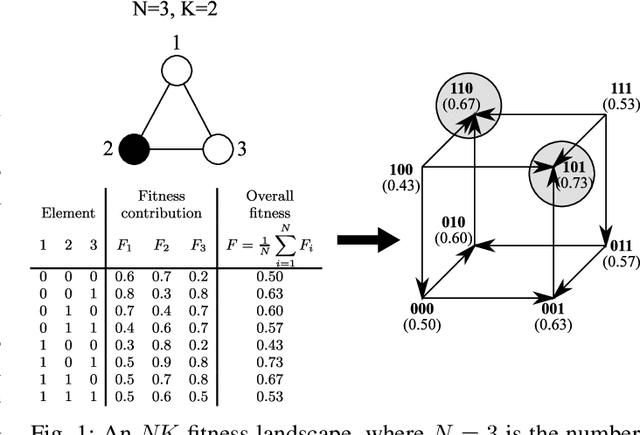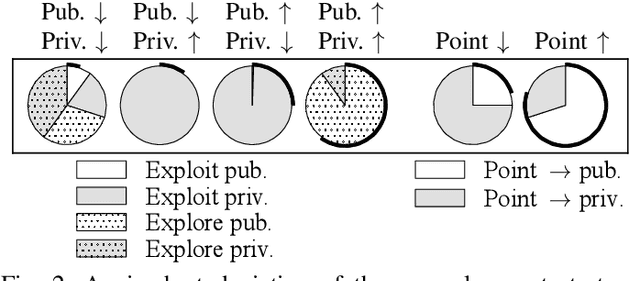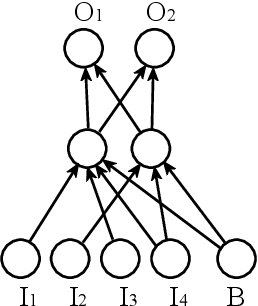Riitta Katila
Evolving Strategies for Competitive Multi-Agent Search
Jul 01, 2023



Abstract:While evolutionary computation is well suited for automatic discovery in engineering, it can also be used to gain insight into how humans and organizations could perform more effectively. Using a real-world problem of innovation search in organizations as the motivating example, this article first formalizes human creative problem solving as competitive multi-agent search (CMAS). CMAS is different from existing single-agent and team search problems in that the agents interact through knowledge of other agents' searches and through the dynamic changes in the search landscape that result from these searches. The main hypothesis is that evolutionary computation can be used to discover effective strategies for CMAS; this hypothesis is verified in a series of experiments on the NK model, i.e.\ partially correlated and tunably rugged fitness landscapes. Different specialized strategies are evolved for each different competitive environment, and also general strategies that perform well across environments. These strategies are more effective and more complex than hand-designed strategies and a strategy based on traditional tree search. Using a novel spherical visualization of such landscapes, insight is gained about how successful strategies work, e.g.\ by tracking positive changes in the landscape. The article thus provides a possible framework for studying various human creative activities as competitive multi-agent search in the future.
Walking the Walk of AI Ethics: Organizational Challenges and the Individualization of Risk among Ethics Entrepreneurs
May 16, 2023Abstract:Amidst decline in public trust in technology, computing ethics have taken center stage, and critics have raised questions about corporate ethics washing. Yet few studies examine the actual implementation of AI ethics values in technology companies. Based on a qualitative analysis of technology workers tasked with integrating AI ethics into product development, we find that workers experience an environment where policies, practices, and outcomes are decoupled. We analyze AI ethics workers as ethics entrepreneurs who work to institutionalize new ethics-related practices within organizations. We show that ethics entrepreneurs face three major barriers to their work. First, they struggle to have ethics prioritized in an environment centered around software product launches. Second, ethics are difficult to quantify in a context where company goals are incentivized by metrics. Third, the frequent reorganization of teams makes it difficult to access knowledge and maintain relationships central to their work. Consequently, individuals take on great personal risk when raising ethics issues, especially when they come from marginalized backgrounds. These findings shed light on complex dynamics of institutional change at technology companies.
 Add to Chrome
Add to Chrome Add to Firefox
Add to Firefox Add to Edge
Add to Edge